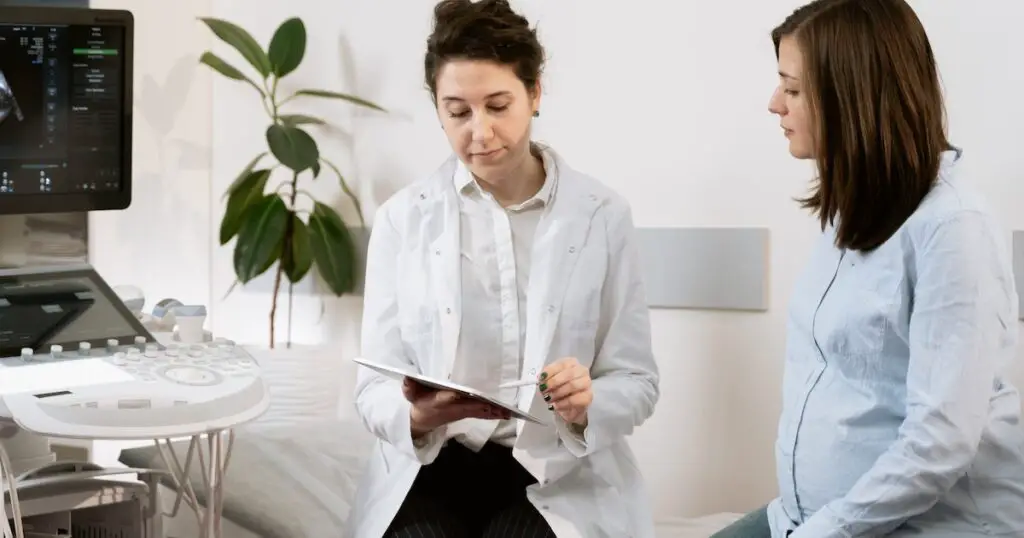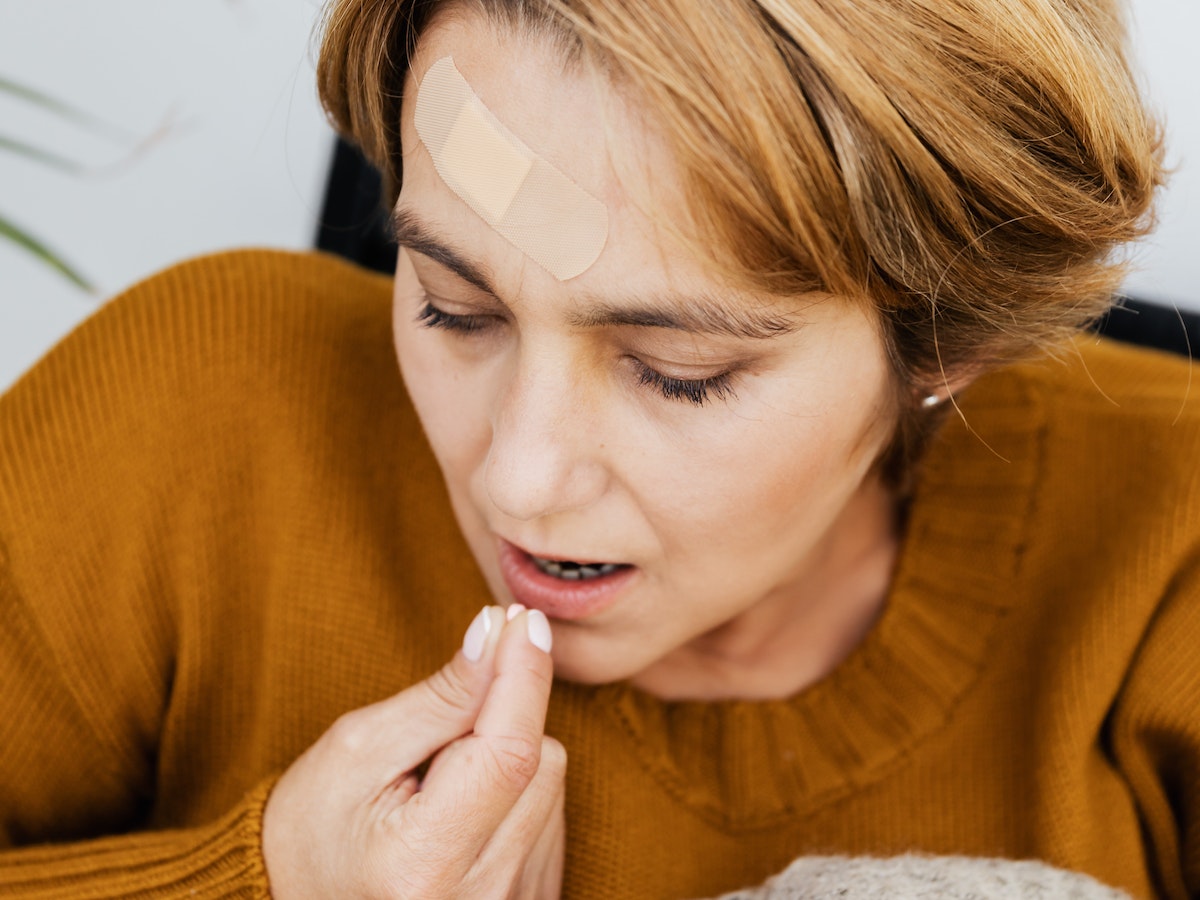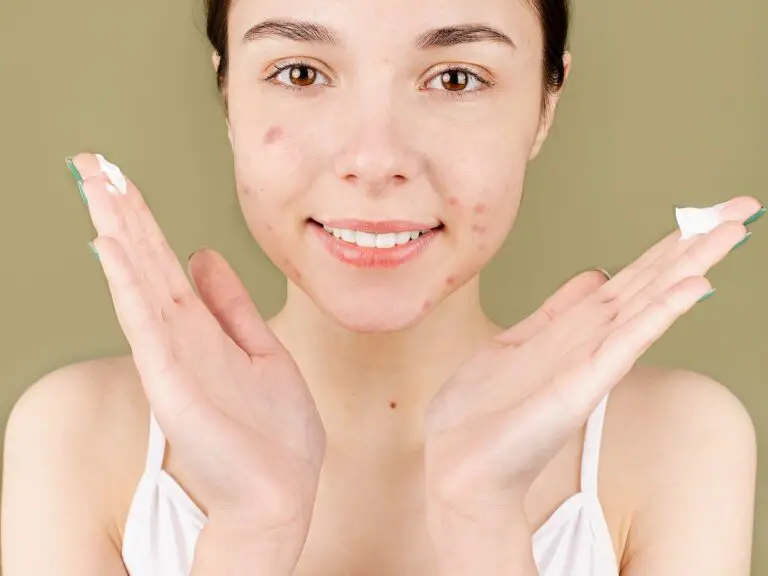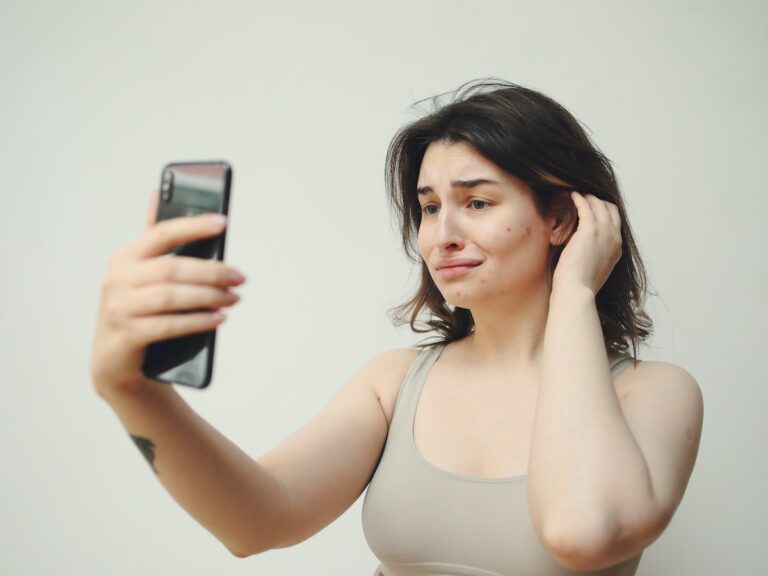Can Wellbutrin Cause Acne? (Causes and Solutions)
Are you one of the many who got acne when taking Wellbutrin? Do you want to know if this popular drug has anything to do with those annoying spots? Don’t look any further because we’re going to talk about Wellbutrin and how it might cause acne.
Wellbutrin, which is also called bupropion, is a drug that is often used to treat depression and help people quit smoking. Even though it works well to make people happier and help them stop smoking, some people have noticed something unexpected: acne.
In this article, we’ll look at some possible reasons why this is happening, whether it’s Wellbutrin or something else. We’ll also tell you what to do if your acne worsens while taking this medicine.
So, keep reading to learn the link between Wellbutrin and acne.
Table of Contents
Understanding the Causes of Acne
Before discussing the connection between Wellbutrin and acne, let’s discuss what causes acne.
Acne occurs when oil, germs, and dead skin cells become trapped in the hair follicles of the skin. Changes in hormones, like those during puberty or menstruation, can make people make more oil, making them more likely to get acne.
Acne can also be caused by stress, what you eat, and some drugs. Even though acne can have different causes for each person, it’s important to know that it’s not always because of bad hygiene or not being clean enough.

Common Side Effects of Wellbutrin
There are many potential side effects associated with the use of Wellbutrin. While not all individuals will experience these side effects, they are important to be aware of. Some of the more common side effects include:
- Dry mouth
- Skin changes
- Nausea and vomiting
- Insomnia
- Headache
- Dizziness
- Sweating
Serious adverse effects, albeit uncommon, are possible. Among these are:
- Seizures
- Changes in vision or hearing
- Hallucinations or delusions
- Chest pain or irregular heartbeat
Seek emergency medical assistance if you suffer any of these potentially life-threatening adverse effects.
The Link between Wellbutrin and Acne
People who take Wellbutrin may be more likely to get acne, according to some studies.
What is Wellbutrin, then?
Wellbutrin is an antidepressant from a group of drugs called norepinephrine-dopamine reuptake inhibitors (NDRI). This means it works by stopping two chemicals, norepinephrine and dopamine, from being taken back up by the brain. This helps improve mood and focus. It has been recommended to treat both major depression and seasonal affective disorder.
Now, let’s talk about acne again. A few case studies have shown a link between taking Wellbutrin and getting acne vulgaris. But it should be mentioned that these reports aren’t very common, and Wellbutrin isn’t listed in the official product information as a possible cause of acne.
Also, it’s important to note that acne can also be caused by hormones, certain foods, and stress, among other things. So, if you’re taking Wellbutrin and getting acne, you should talk to your doctor to ensure it’s not from something else before you blame the drug.

Studies and Research on Wellbutrin and Acne
Several studies and research papers have determined if Wellbutrin might cause acne. Read about some of these studies below.
A study from 2006 that was published in the Journal of Clinical Psychiatry showed that Wellbutrin may make you more likely to get acne. The study examined people with major depressive disorder who were taking Wellbutrin. Researchers found that people who got acne during the study were more likely to be taking Wellbutrin than people who didn’t get acne.
In 2009, the International Journal of Dermatology released a study that looked at case reports of people taking bupropion, which is the generic name for Wellbutrin. The study found 12 out of 13 people who started taking the medication got new acne. Also, 11 out of 13 patients whose acne was already bad got worse after they started taking bupropion.
There may be a link between Wellbutrin and pimples, according to these studies. But more study needs to be done to confirm this link.
How does Wellbutrin Potentially cause Acne?
We don’t fully understand how Wellbutrin might cause acne, but we know it might. But some ideas could explain why this is happening. One idea says that Wellbutrin may raise the levels of some hormones, like testosterone, which can cause the skin to make more oil and lead to acne.
Another idea is that Wellbutrin may cause acne indirectly by changing how chemicals work in the brain. Changes in neurotransmitter levels can throw off the balance of hormones and cause skin problems like acne.
Managing Acne while Taking Wellbutrin
If you are taking Wellbutrin and getting acne, there are a few things you can try to deal with your skin problem. First, it’s important to keep up with skincare practice. This means washing your face twice daily with a gentle cleaner, avoiding harsh scrubs and abrasive products, and moisturizing your skin to keep it from drying.
In addition to a good skin care practice, you can do a few other things to help your acne. These include eating well, exercising regularly, dealing with worry, and avoiding triggers like too much sun or smoking.

Consultation with a Healthcare Professional
If you’re worried that Wellbutrin might be causing your pimples, it’s best to talk to a doctor. They will tell you if the medicine causes your acne or if there may be something else going on. You can get ready for your meeting by doing a few things.
First, list all the prescription and over-the-counter medicines and vitamins you take. Make sure to write down how long you’ve been taking each drug. Next, write down when your pimples started and what kind they are (whiteheads, blackheads, cysts, etc.). You might also want to bring shots of your skin before and after taking Wellbutrin to show the doctor.
During the appointment, the doctor or nurse will probably ask about your health history and look at your body. They may also have you do some tests in a lab to rule out other things that could be causing your acne. Once they’ve decided that Wellbutrin is probably causing your acne, they’ll work with you to plan how to treat it. This could mean changing the amount of your antidepressant or moving to a different one.
Alternative Medications for Individuals Prone to Acne
If you get acne often, you may wonder if there are other medicines besides Wellbutrin that can help you deal with it. Even though Wellbutrin doesn’t usually cause acne, there is a small chance it could worsen or even cause new breakouts. If you are worried that Wellbutrin might give you acne, you might want to try one of the following medicines instead:
–Zoloft: Zoloft is a popular antidepressant that has been shown to help treat acne. Zoloft and Wellbutrin are in a group of drugs called selective serotonin reuptake inhibitors, or SSRIs. These drugs increase the serotonin in the brain.
-Prozac: Prozac is an SSRI that has also been shown to help treat acne. In addition to helping with depression, Prozac has been shown to lower the amount of sebum your body makes. This can help keep your pores clear and stop breakouts.
– Paxil: Like Prozac and Zoloft, Paxil is an antidepressant. It has also been shown to help treat acne because it can stop sebum from being made.
If you are considering taking one of these alternative acne treatments, you should talk to your doctor first. They can help you weigh each drug’s pros and cons and ensure that it is safe for you to take.

Conclusion
Even though no one knows the link between Wellbutrin and acne, there have been reports of people getting acne while taking this drug. Even though it’s not a common side effect, you should know it could happen and talk to your doctor or nurse if you’re afraid.
If you are taking Wellbutrin and getting acne, it is important to keep up with your makeup routine, change your lifestyle, and care for your skin health.
Remember that everyone’s drug experiences are different, and what works for one person might not work for another. You can deal with the possible link between Wellbutrin and acne better if you stay aware, talk to a professional. They can give you specific advice and help you determine the best way to treat your acne while taking Wellbutrin.
FAQs
To treat acne caused by Wellbutrin, it is recommended to consult a healthcare professional. They can assess the situation and suggest adjusting the medication dosage or prescribing topical or oral acne treatments. Maintaining a consistent skincare routine, including gentle cleansing and non-comedogenic products, can help manage acne symptoms.
During the first week of Wellbutrin, common side effects may include headache, nausea, insomnia, and dry mouth. However, acne is not commonly reported as a side effect of Wellbutrin. If you experience persistent or severe side effects, it is important to consult with your healthcare provider for further evaluation and guidance.
Early-stage Wellbutrin rash is a skin reaction that can occur within the first few weeks of starting Wellbutrin (bupropion) medication. It typically presents as a red, itchy, or irritated rash on the skin. If you develop a rash while taking Wellbutrin, you must notify your healthcare provider for evaluation and appropriate management.
Wellbutrin (bupropion) primarily affects the neurotransmitters dopamine and norepinephrine in the brain and does not directly impact hormones. However, individual responses to medication can vary, and some individuals may experience changes in hormone levels as an indirect effect of Wellbutrin. If you have concerns about hormonal changes while taking Wellbutrin, discussing them with your healthcare provider is recommended.
Anxiety acne typically presents as small, red, inflamed pimples on the face, particularly on the forehead, cheeks, and chin. It is often accompanied by other anxiety symptoms, such as stress, increased sweating, and heightened emotional response. Proper management of anxiety, including stress reduction techniques and skincare routines, can help address and prevent anxiety-related acne breakouts.
Disclaimer: This article is for educational purposes only, and does not substitute any medical advice. Always consult a qualified healthcare professional for personalized advice before trying new treatments or medications.

General Physician
Senior Medical Writer






